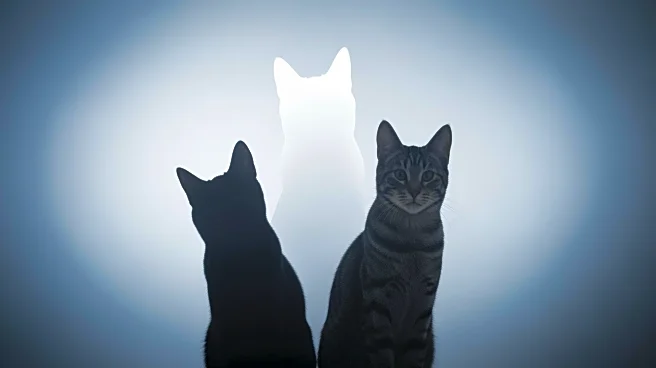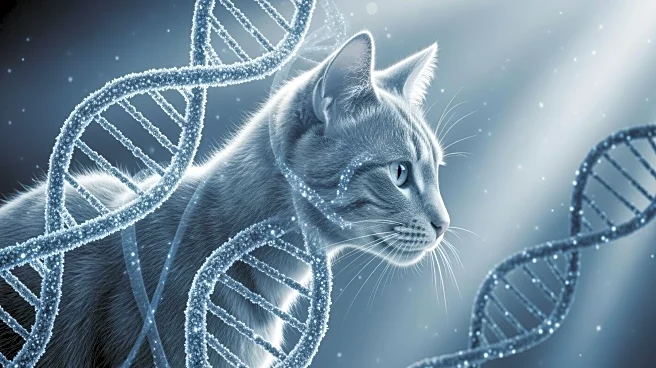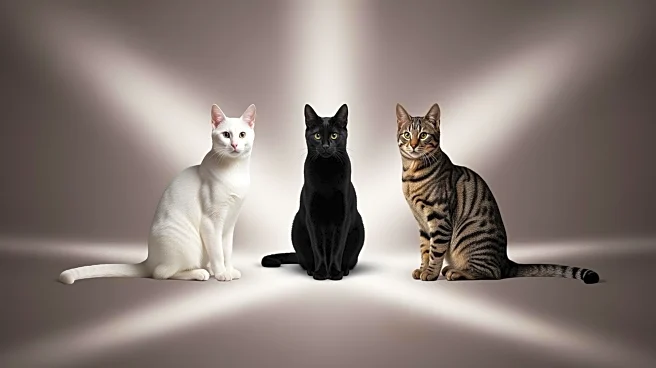What's Happening?
Sara Levine, known for her debut novel 'Treasure Island!!!', is set to release her sophomore novel 'The Hitch' in January 2026 under Roxane Gay's imprint at Grove Atlantic. The novel features a self-righteous narrator, Rose, who faces unexpected challenges
while caring for her nephew, Nathan. The plot thickens when Rose's dog kills a corgi, leading Nathan to believe the corgi's spirit has possessed him. Levine's work is characterized by a blend of humor and cerebral storytelling, often challenging traditional narratives and exploring themes of human connection and interdependence. Levine, who is also a vegan and dog lover, has a background in literature and teaching, and her writing process involves brief, focused intervals.
Why It's Important?
Levine's work is significant for its exploration of unlikable female protagonists, a theme that has sparked discourse in literary circles. Her approach challenges the traditional acceptance of unpleasant male characters while advocating for complex female narratives. The novel 'The Hitch' promises to continue this exploration, potentially influencing discussions on gender representation in literature. Levine's unique blend of humor and depth in storytelling offers readers a fresh perspective on narrative structure and character development, contributing to broader conversations about literary innovation and cultural critique.
What's Next?
With the release of 'The Hitch', Levine may further establish her reputation as a writer who challenges conventional storytelling norms. The novel's reception could influence future literary trends, particularly in the portrayal of complex female characters. As Levine continues to teach and write, her work may inspire new writers to explore similar themes, potentially leading to a shift in how narratives are constructed and received in contemporary literature.
Beyond the Headlines
Levine's approach to storytelling, which includes elements of humor and ambiguity, invites readers to engage with her work on multiple levels. This method not only entertains but also encourages critical thinking about narrative reliability and the nature of human relationships. Her work may contribute to ongoing discussions about the role of humor in literature and its ability to address serious themes in a nuanced manner.

















